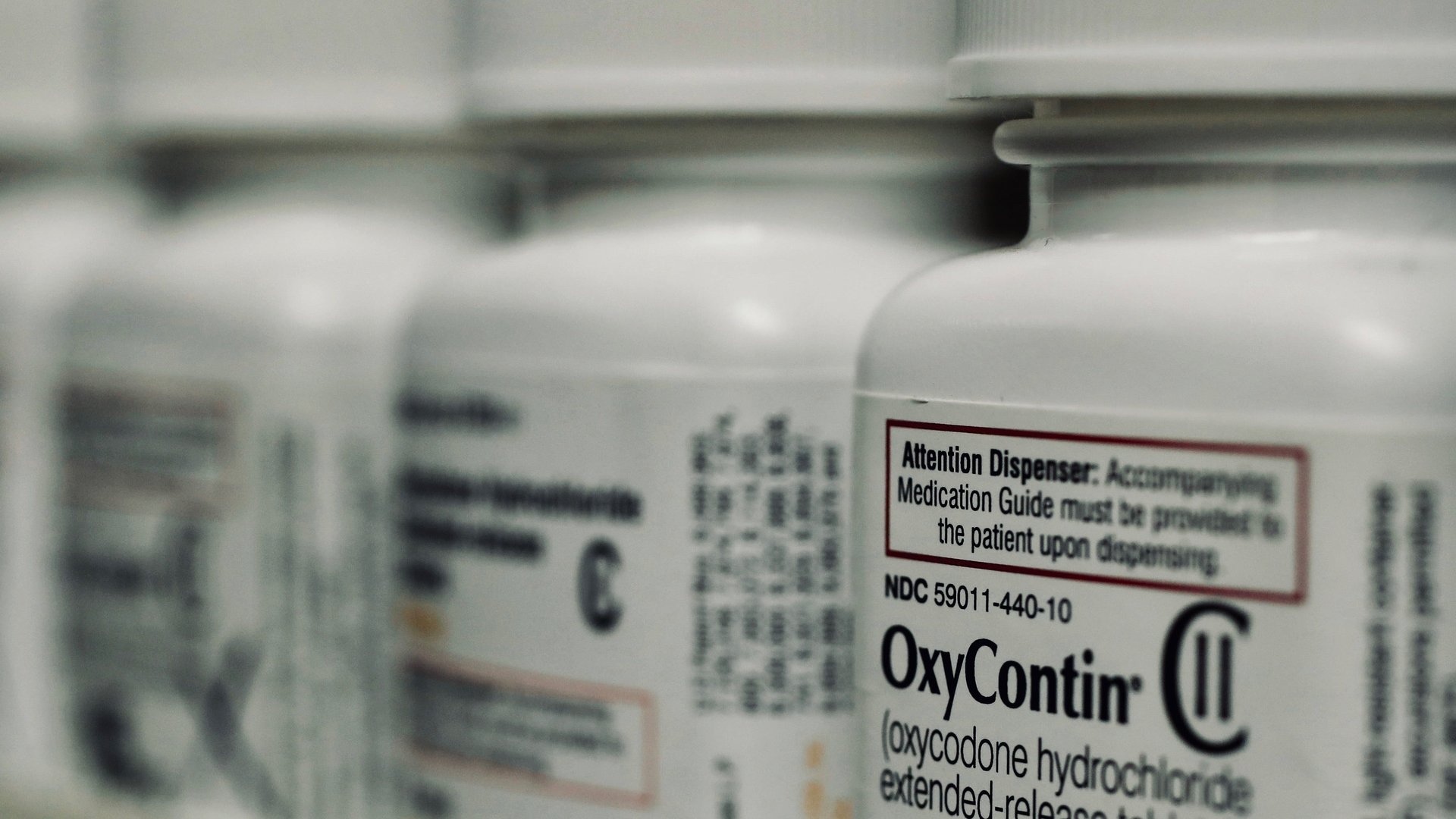Purdue Pharma offers billions to settle opioids lawsuits. Some states say it’s not enough
The maker of Oxycontin, Purdue Pharma, is reportedly near reaching a global settlement agreement with plaintiffs, cities, counties, and states that sued the company for its role in pushing and promoting the opioid epidemic and creating a national addiction crisis. The agreement, if finalized, involves the company declaring bankruptcy, and it would cost Purdue and its owners, the Sackler family, $10 billion to $12 billion.


The maker of Oxycontin, Purdue Pharma, is reportedly near reaching a global settlement agreement with plaintiffs, cities, counties, and states that sued the company for its role in pushing and promoting the opioid epidemic and creating a national addiction crisis. The agreement, if finalized, involves the company declaring bankruptcy, and it would cost Purdue and its owners, the Sackler family, $10 billion to $12 billion.
There’s just one problem: Not all parties to the matter have accepted the proposed settlement.
According to Reuters, which first reported that a tentative settlement was reached today, lead lawyers representing more than 2,000 cities, counties, and other plaintiffs suing Purdue, along with 23 states and three US territories, have agreed to the negotiated deal. But more than a dozen states have either rejected the offer or have been noncommittal.
Connecticut Attorney General William Tong, for example, said in a statement on Twitter that he has not agreed to the deal. “The scope and scale of the pain, death and destruction that Purdue and the Sacklers have caused far exceeds anything that has been offered thus far.” Tong said that Connecticut will continue to pursue the case even if other parties take a deal and Purdue Pharma declares bankruptcy as part of the negotiated settlement.
The Washington Post reports that a major concern of Tong and other states that oppose the settlement is that the billions promised may never materialize. Under the terms of the proposed deal, the Sackler family would pay $3 billion of its own money and relinquish control of Stamford, Connecticut-based Purdue Pharma. The company would declare bankruptcy, operating as a trust with the goal of combatting the opioid epidemic. But litigants fear that the promised billions assume the company and sale of a subsidiary are worth that much—and that may not turn out to be the case.
News of a settlement has been expected, especially after Johnson and Johnson lost a lawsuit in Oklahoma last month, incurring a $527 million fine. Purdue previously settled that same matter in March for $270 million, while defendant Teva Pharmaceuticals settled for $85 million. J&J’s loss in Oklahoma and the looming trial dates were putting pressure on Purdue Pharma to reach a deal, said Regina LaBelle, program director of the Georgetown University Law Center’s Addiction and Public Policy Initiative at the O’Neill Institute for National and Global Health Law.
Two bellwether cases in Ohio are set for trial in October, and the federal judge presiding over the consolidated opioid cases has been urging parties to settle. But as Tong’s statement shows, even if many litigants choose to accept Purdue’s offer, the case of Purdue Pharma’s role in the national opioid epidemic is far from closed.